9 Kitchen Renovation Shortcuts That Can Violate Local Codes
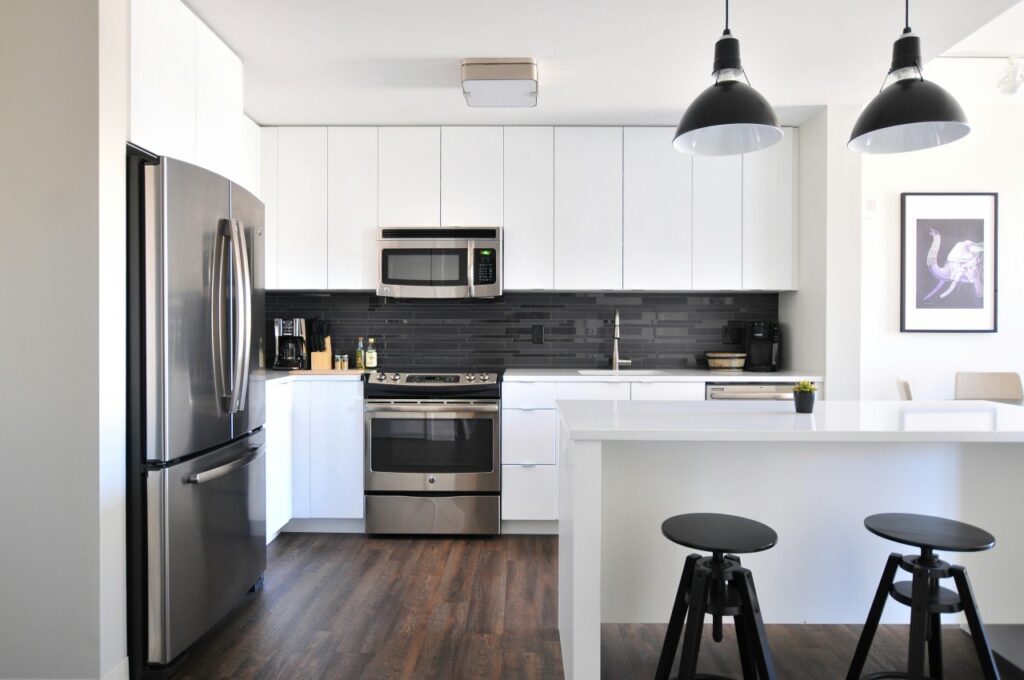
Kitchen renovations are exciting chances to refresh your home, but rushing to save time or money can cause costly mistakes. Many homeowners unknowingly take shortcuts that violate local building codes, from skipping permits to using non-compliant materials or attempting unlicensed electrical and gas work. These actions can create safety hazards, compromise structural integrity, and lead to fines or forced corrections. Following codes and hiring qualified professionals ensures a safe, functional, and legally sound kitchen you can enjoy for years.
1. Skipping Permits

Many homeowners assume that minor kitchen updates don’t require permits, but even small renovations can legally need approval. Altering walls, upgrading plumbing, or changing electrical layouts without permits can lead to fines, forced removal of work, and complications when selling the home. Permits exist to ensure safety, code compliance, and proper inspections, protecting both occupants and the property’s value. Taking the time to secure them may delay a project slightly, but it avoids costly mistakes and legal headaches in the long run.
2. Improper Electrical Work
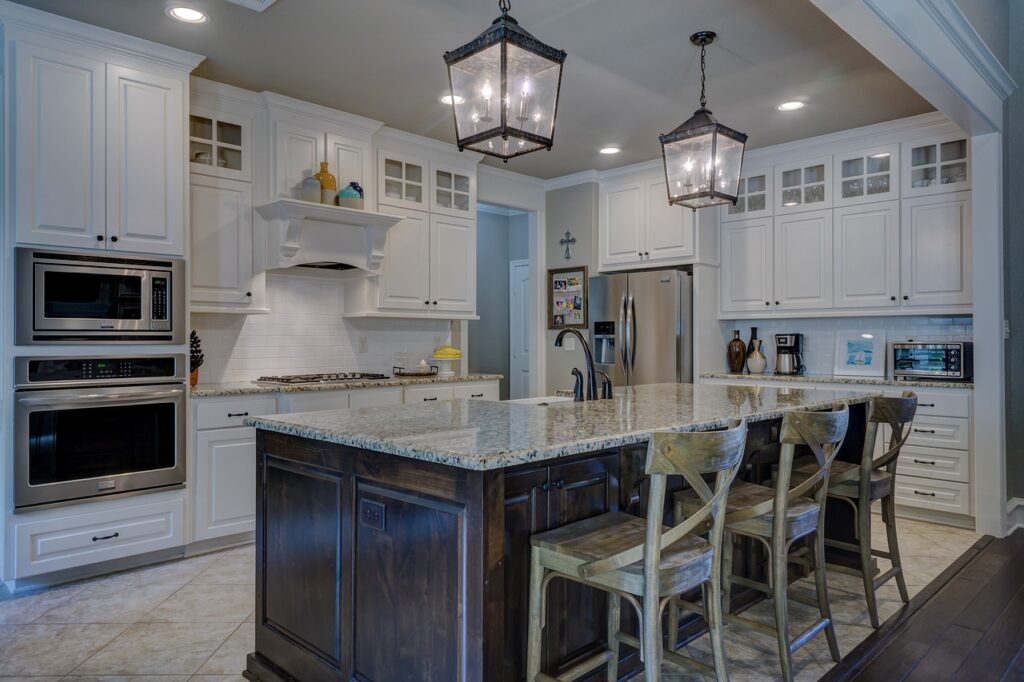
DIY electrical work may seem like a cost-saving shortcut, but improper wiring in a kitchen can be extremely dangerous. Kitchens use multiple high-powered appliances, and code regulations dictate outlet placement, circuit capacity, and grounding to prevent shocks or fires. Cutting corners, such as bypassing GFCI requirements or overloading circuits, can violate local codes and endanger everyone in the home. Hiring a licensed electrician ensures that wiring meets safety standards and can prevent long-term risks from seemingly minor errors.
3. Skipping Inspections
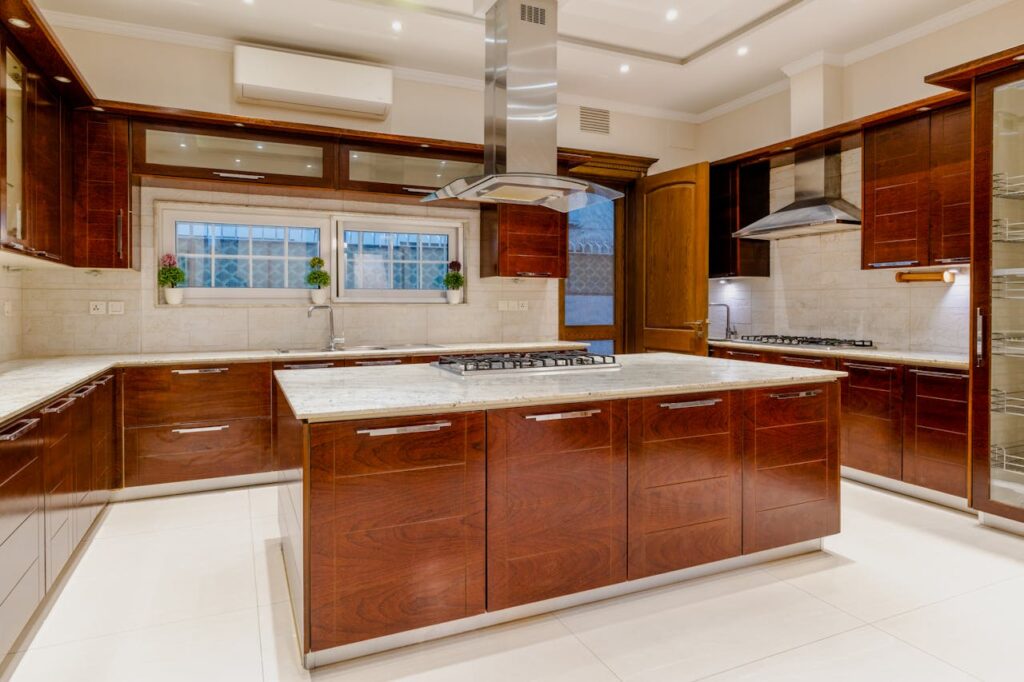
Inspections are a critical part of any kitchen renovation, yet some homeowners skip them to save time or avoid fees. Ignoring inspections means code violations, structural problems, or faulty installations can go unnoticed until they cause serious issues. Local regulations require inspections for plumbing, electrical, and structural work to ensure safety and quality. Completing inspections not only provides peace of mind but also protects your investment, prevents costly corrections, and ensures that the renovation meets legal and safety standards.
4. Ignoring Ventilation Requirements
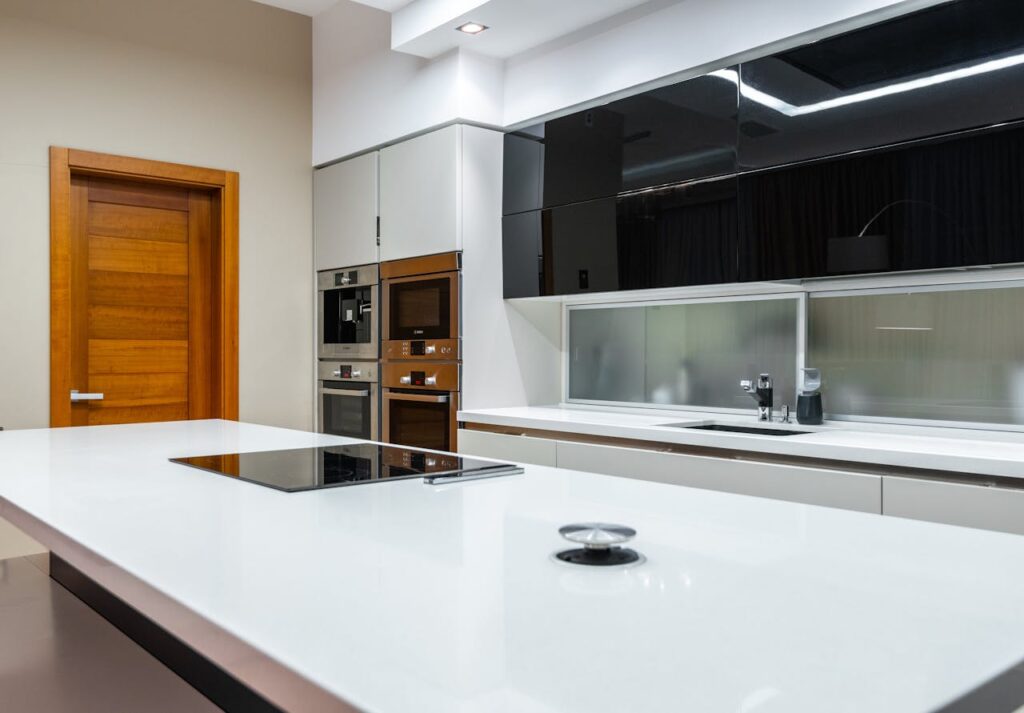
Proper kitchen ventilation is essential for safety and comfort. Shortcuts such as underpowered hoods, ductless fans, or incorrect ducting can violate building codes and create fire hazards or moisture problems. Kitchens generate heat, smoke, and humidity that must be vented properly to prevent mold growth, structural damage, or indoor air quality issues. Following local code for vent size, placement, and installation ensures that your kitchen remains functional, safe, and comfortable while avoiding fines or costly retrofits.
5. Using Non-Compliant Materials
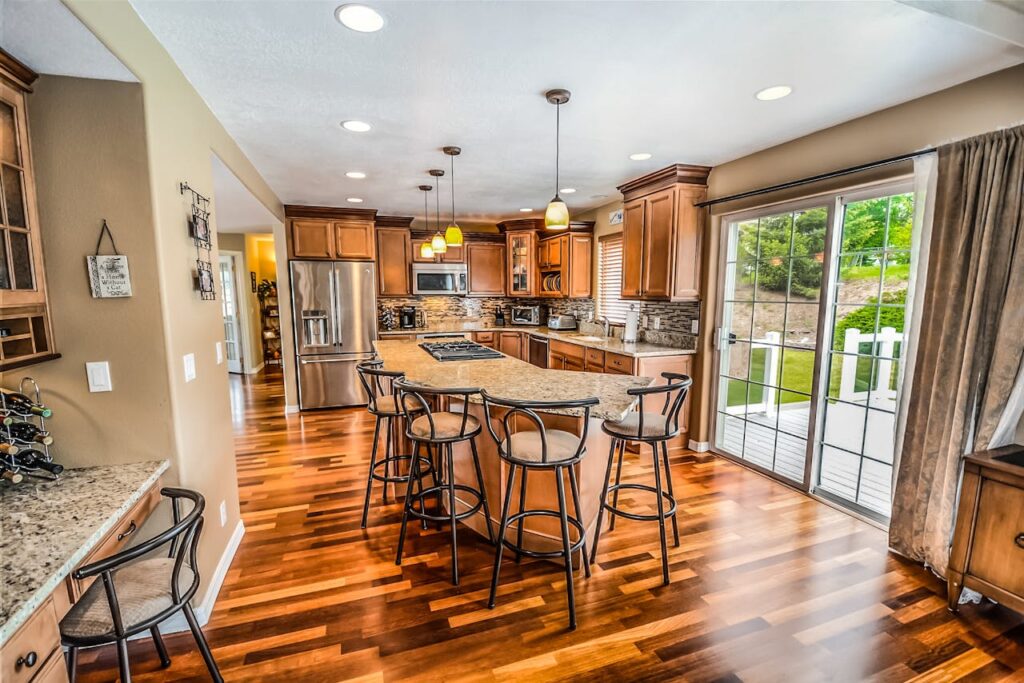
Some homeowners try to save money by using cheaper or non-code-approved materials, like substandard wiring, plumbing, or fire-resistant surfaces. While these may reduce upfront costs, they often fail to meet safety standards and can lead to fines, failed inspections, or dangerous conditions. Using materials that comply with local codes ensures long-term durability, safety, and proper performance. Choosing approved materials protects your family, your property, and your investment, making compliance an essential aspect of any renovation.
6. Improper Gas Line Installation
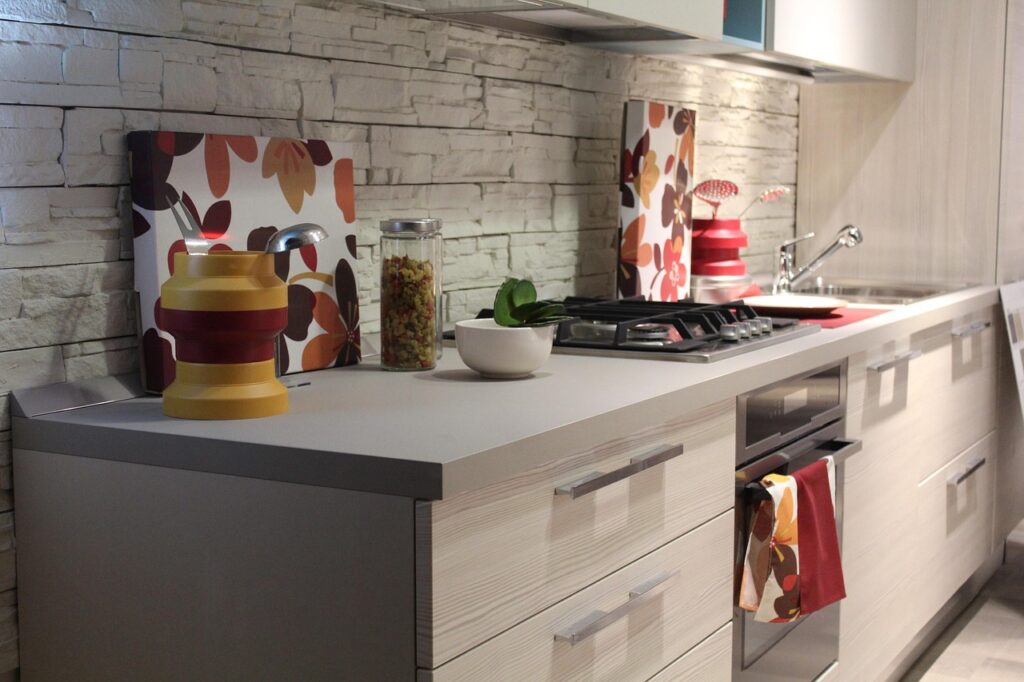
Installing gas lines for stoves or ovens may seem straightforward, but doing it incorrectly can be extremely hazardous. Gas connections require proper pressure, secure fittings, and code-compliant venting to prevent leaks or explosions. DIY installation or hiring unlicensed contractors can violate building codes and put the home at serious risk. Always rely on certified professionals for gas work to meet local regulations and guarantee the safe operation of appliances, keeping your family and property protected from potential disasters.
7. Modifying Structural Elements Without Approval
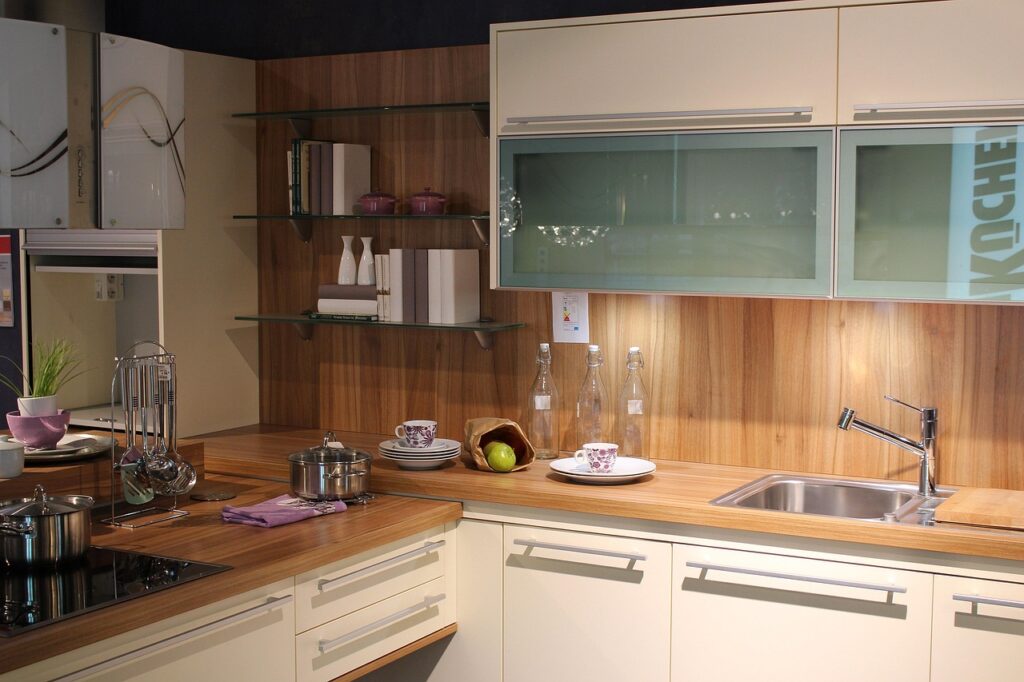
Altering load-bearing walls, removing supports, or changing the layout of a kitchen without proper approval can compromise the home’s structure. Structural modifications require permits and often consultation with engineers to ensure safety. Ignoring these steps can cause instability, lead to fines, and necessitate costly repairs. Even small changes can affect weight distribution and overall stability. Following local codes and professional guidance ensures your renovation is safe, durable, and legally compliant.
8. Incorrect Plumbing Installations
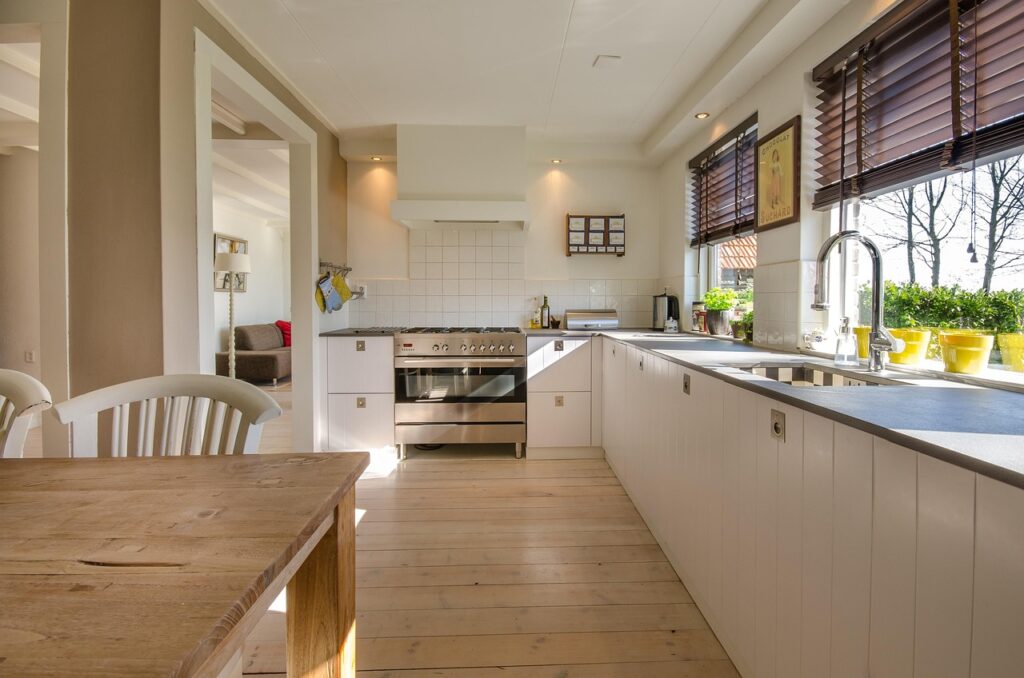
Plumbing shortcuts, such as using improper pipe materials or incorrect layouts, can violate codes and cause leaks, water damage, or contamination. Kitchens require proper venting, drainage, and water supply connections to function safely and efficiently. Local building codes specify pipe types, joint techniques, and installation standards to prevent issues. Compliance ensures long-term reliability, safety, and ease of maintenance, preventing headaches and unexpected costs from amateur plumbing decisions.
9. Overlooking Fire Safety Measures
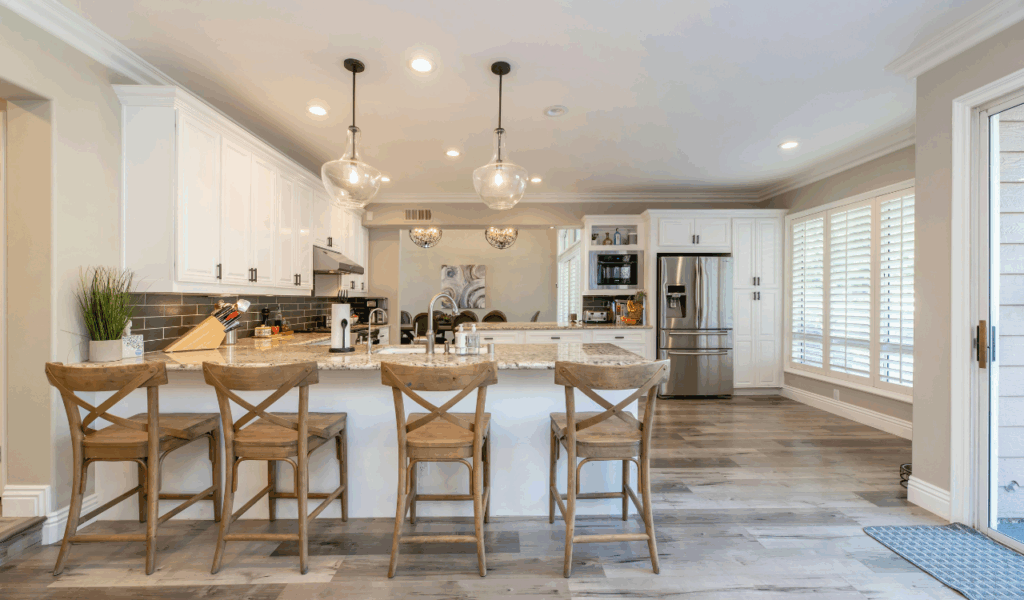
Kitchens are high-risk areas for fires, making adherence to fire safety codes essential. Shortcuts like skipping fire-rated materials, omitting smoke detectors, or reducing required clearances around stoves can create hazards. Fire codes are designed to protect occupants, limit property damage, and provide early warning in emergencies. Ensuring that your kitchen meets all safety requirements, including materials, appliances, and layouts, prevents accidents and guarantees peace of mind for the homeowner.





